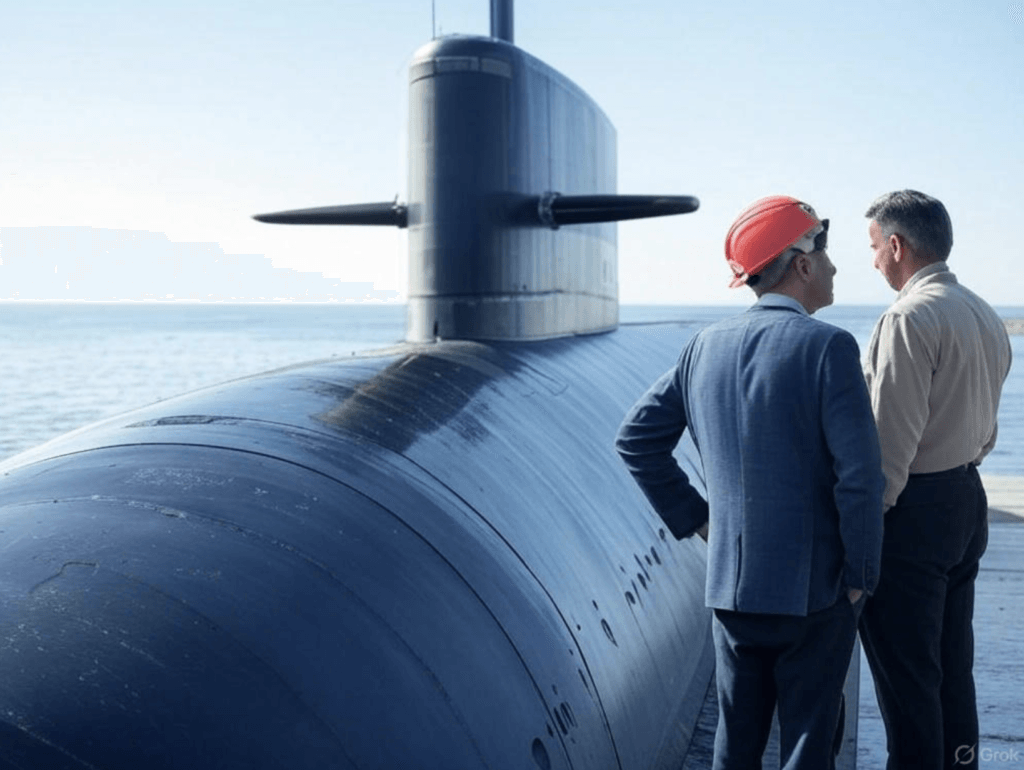Germany’s leading submarine manufacturer, ThyssenKrupp Marine Systems (TKMS), has reaffirmed its commitment to strengthening collaboration with India in the defense sector. As India continues to modernize its naval fleet, TKMS is actively engaging in discussions with Indian authorities and shipbuilders to facilitate the production of advanced submarines under the ‘Make in India’ initiative.

Strategic Partnership and Technology Transfer
TKMS has expressed keen interest in participating in India’s ambitious Project-75I, which aims to procure next-generation submarines equipped with cutting-edge technology. The company has offered to provide its expertise in submarine construction, along with advanced Air-Independent Propulsion (AIP) systems that enhance underwater endurance.
One of the key highlights of TKMS’s proposal is technology transfer. The German company is willing to share critical know-how with Indian shipyards to enable domestic production of submarines. This aligns with India’s long-term vision of achieving self-reliance in defense manufacturing while strengthening its maritime security.
Strengthening India’s Naval Capabilities
India’s growing concerns over regional security and maritime threats have necessitated a significant boost to its naval strength. The Indian Navy has been actively seeking modern submarines to counter emerging threats in the Indo-Pacific region. TKMS, with its history of producing world-class submarines such as the Type 212 and Type 214, is well-positioned to contribute to India’s naval expansion.
The company’s proven expertise in modular submarine construction would allow India to manufacture submarines with greater efficiency. Additionally, the incorporation of stealth technology and advanced weapon systems in TKMS’s designs could significantly enhance the combat readiness of India’s submarine fleet.
Challenges and Opportunities
Despite the promising collaboration, there are challenges that both parties must navigate. The Indian defense sector has stringent requirements regarding indigenous production, and foreign defense manufacturers must align their proposals accordingly. Additionally, the bidding process for Project-75I is highly competitive, with contenders from France, Russia, and South Korea also vying for the contract.
However, TKMS remains optimistic about its prospects in India. The company has highlighted its successful partnerships with various international navies and its ability to integrate local manufacturing capabilities. If awarded the contract, TKMS plans to work closely with Indian shipyards to develop submarines tailored to the Navy’s operational needs.
India-Germany Defense Relations
The potential partnership between TKMS and India is part of the broader Indo-German defense cooperation. Germany and India have been enhancing their bilateral ties in defense and security matters, with a focus on joint ventures and technology-sharing agreements. This collaboration not only strengthens India’s defense industry but also fosters deeper strategic relations between the two nations.
Conclusion
ThyssenKrupp Marine Systems’ engagement with India marks a significant step toward bolstering the country’s naval strength. By offering cutting-edge submarine technology and facilitating indigenous manufacturing, TKMS is positioning itself as a key player in India’s defense modernization efforts. As discussions progress, the collaboration could pave the way for a transformative partnership that enhances India’s maritime capabilities while promoting technological advancements in the domestic defense sector.